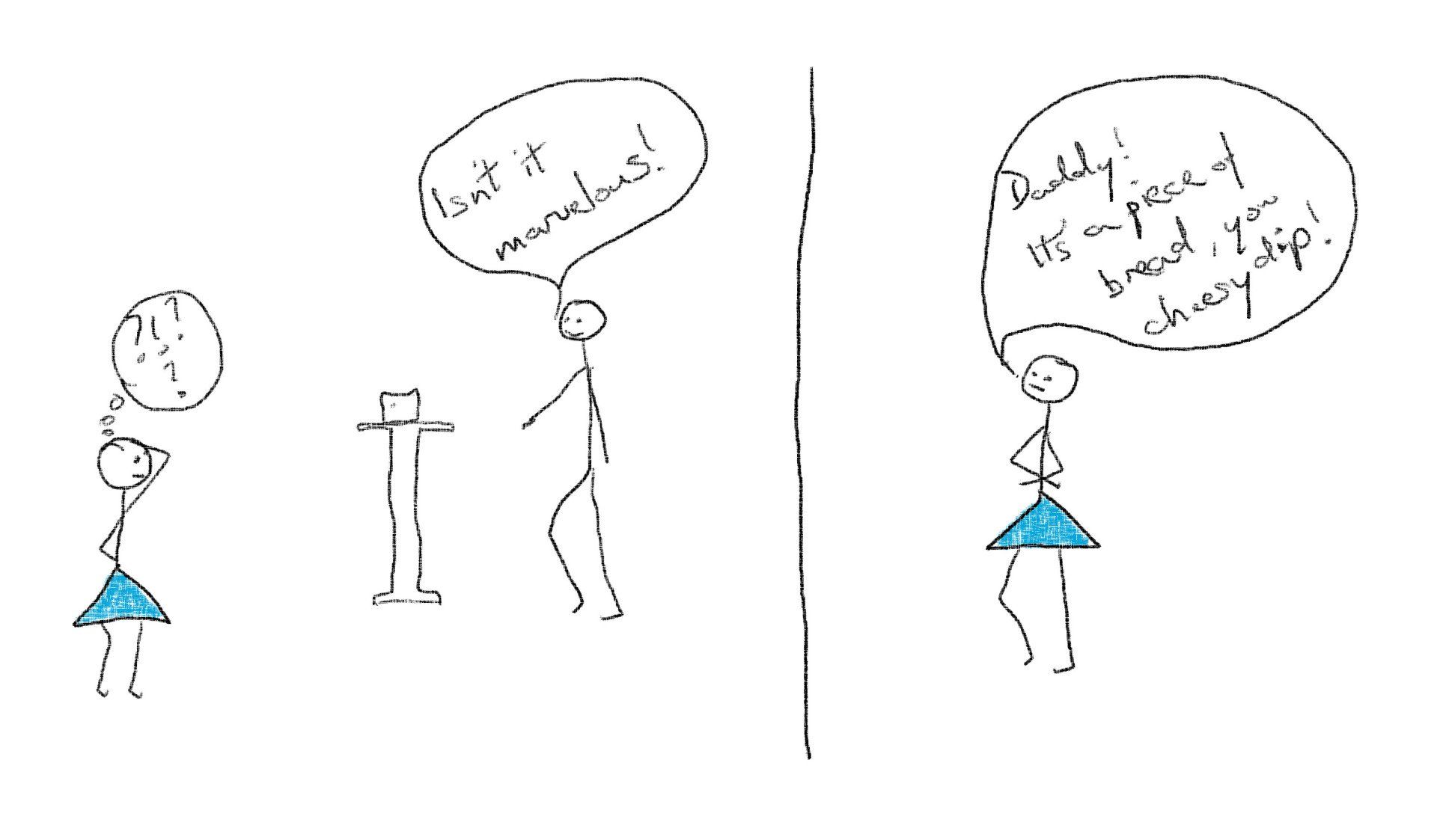
Are You...
Making Mealtimes A Battleground?
Making Food A Thing Of Wonder
Food, Glorious Food

Do it in the right way and fostering a love of food can help our children overcome the barriers to new experiences.
It's all about awakening curiosity...
Some might think that encouraging a love of food would be a potentially dangerous business in this age of obesity and diabetes.
But, in fact, the opposite is true.
People locked in a bland 'safe' diet of processed meats, carbohydrates, fat and sugar are far more likely to succumb to obesity and diabetes than those with a curiosity to explore a broad palate of food experiences.
Helping to awaken that curiosity in our children can help them overcome the potentially significant hurdle to trying something new and set them on a life long path of food exploration.
Start with a love of what they know...
Awakening curiosity should not be an excuse to push children into trying new things.
If has to start with what they already know and feel safe with.
The first step is to develop an appreciative language for the food they currently enjoy.
It doesn't matter whether that is chicken nuggets, pasta and sauce, baked beans or anything else.
Everything can be genuinely yummy in its own way.
Ask to try some of their food and describe something in it that you love.
"Mmmm.... these chicken nuggets are so moist and tender."
It might sound banal, but what you are doing is awakening a conscious awareness of the food in their mouths and starting to provide a language for them to use when thinking about food.
Tasting sessions are a great way to open up curiosity...
Whether it's sausages, chicken nuggets, crackers or even chocolate cake, find something they really love and hold a tasting session.
There are lots of things you can do:
- buy different varieties
- prepare them in different ways
- accompany them with different optional dips or sauces
- ideally get them involved in making or preparing their own version
However you do it, the key is to make it fun and to use it to help them develop a language and conscious awareness of the difference.
Probably the one they will love the best is the one they are used to, but that's absolutely fine for now.
In time they will start to become curious about food and to pay closer attention when they see something different. This is the start of their journey.
Find an opportunity every week to make things special...
Making every day a special food day is a lovely idea that is probably only possible for most parents when on holiday.
On a more practical level, if you can find one opportunity a week then that's quite enough to make a difference.
There's all sorts of different opportunities to do it:
- Have a picnic in the garden, or the living room with all their favourites and some of yours too
- Let them choose their favourite meal and go with whatever they suggest even if it's baked beans, carrots and ketchup, or some other odd concoction
- Let them help you choose what you are going to have for dinner and then let them help you prepare it (you might want to put some parameters around this one!)
- Pick something you know they love and sit with them going through recipe books to find new or special ways to make it
- Find ways to make a family favourite even more delicious, make the roast potatoes even crispier, make the pasta sauce even richer, learn to cook fish to perfection
- Let them choose your meal in a restaurant as well as their own so they become curious about what you are eating and if they're ready for it try sharing some of yours with them
Treat or Trough?
There is a potential problem with making food special.
Really special food is often bad for us, or at least worse for us than the every day version. There is likely to be more sugar, more fat, more salt, more potentially carcinogenic crisping... more, more, more!
How can this possibly be a good thing?
Well, imagine the reverse. Imagine if we didn't make food seem special.
It wouldn't stop our children from craving unhealthy options, the sweetest cakes, biscuits and ice-cream, the greasiest sausage rolls or the cheesiest pizzas.
The difference is there would be no understanding of these things as being 'special', or 'treats' and therefore nothing to stop them becoming staples, or over indulging.
And, of course, despite what I said earlier, not all special food is bad for us. A pan fried mackerel, a juicy prawn dipped in garlicky mayonnaise, a thin slice of lightly seared venison, a sweet in season strawberry, or, as we had at the weekend, lightly pickled beetroot fresh from the garden.
These are some of my daughters favourite things, alongside sausages and chocolate ice-cream, of course!
Some of the rules I try to stick to with my daughter are:
- celebrate the things she loves, even if it's chocolate cake
- find things she will love in all food groups
- limit the quantities of the really unhealthy options, half a chocolate cake tastes just as delicious as a whole one
- develop an understanding of 'treat' as something relatively rare and special
- but not so rare as to loose its value or to ever feel 'forbidden'
- still use positive language around the staples - a plate of cabbage and gravy, or fried mushrooms can easily be delicious too
Elevate, awaken, describe...
Food is an extremely complex sensory experience.
Awakening our children's conscious thought processes to what's going on and giving them a language to do that processing with will accelerate their development.
Combine it with elevating their food experiences and you will help create a curiosity that will eventually lead to wanting to try new things.
But don't rush, even accelerated development feels agonisingly slow when you're waiting and watching.
Remember, young children do not refuse to eat things just to wind us up!
Unless we teach them to do so.
Created 21/06/2019
Last Updated 24/06/2019

